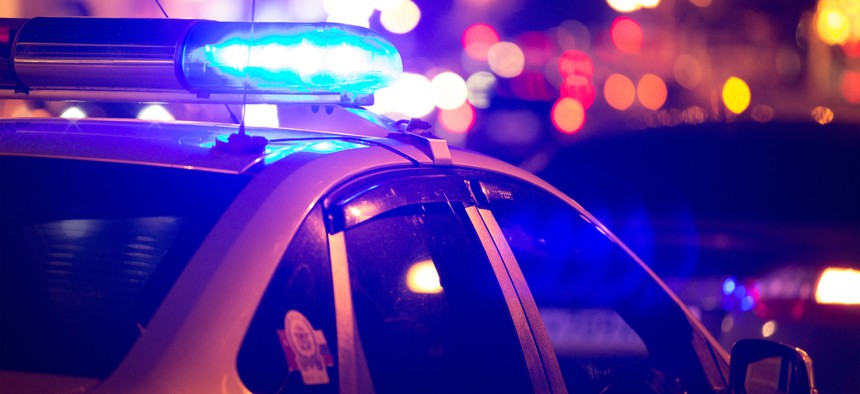Confronting Mental Illness, Officers Preferred Remote Clinicians Over A Human Presence

Shutterstock
A Texas startup believes they have improved on the best practice of social workers riding along with law enforcement. Mayors at SXSW were taken with the idea, awarding the company first prize in their civic tech pitch competition.
Mayors awarded $10,000 on Sunday to a startup that wants to build on the success of social workers riding along in vehicles with police officers to better deal with situations where law enforcement must intervene in mental health crises.
The company, Cloud 9, developed an app that connects law enforcement with a team of clinicians as an alternative to the widely adopted model where a social worker rides along with officers. Liz Truong, co-founder and chief clinical officer of Cloud 9, told mayors that the company’s pilot with the sheriff office in Harris County, Texas not only showed a 22 percent decrease in emergency room and jail visits, but also did so at a fraction of the cost of the ride-along model. In addition, she said 97 percent of officers thought Cloud 9’s remote care superior to a ride along social worker.
[Check out the Civic I/O the finalists’ pitches, along Q&A with mayors]
Dallas Mayor Mike Rawlings seemed particularly surprised by the overwhelming consensus a remote interaction was better than having a social worker present.
“We were able to actually bring higher level clinicians, because social workers have a limited capacity in their decision-making capability and they can’t provide medications,” Truong said. “So now, the officers can dial a psychiatrist who can make actual decisions about clinical treatment.”
The civic tech pitch was part of Civic I/O, the mayors’ summit at SXSW. As such, all the finalists who presented had a golden opportunity to gain exposure to the chief executives of cities across the United States.
Four other companies were finalists and presented at the Civic I/O tech pitch at SXSW in Austin:
- Augmented Training Systems, which uses “state-of-the-art AR and VR technologies” to help first responders train for mass casualty events;
- Heat Seek, which uses sensor technology to analyze both temperature data and citywide data to provide new ways for advocates to target and reach at-risk tenants;
- ODN, uses machine learning to predict the probability of car crashes and helps cities meet their Vision Zero traffic fatality reduction goals; and
- BLOC, a company utilizing artificial intelligence and automation to support workforce training organizations, unions, and schools in their efforts to help individuals find jobs.
NEXT STORY: State AGs Call Out Congress on Robocalls





